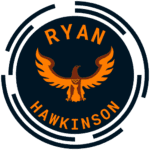Software Feature
Sharable Content Object Reference Model (SCORM)

Sharable Content Object Reference Model (SCORM): Enabling Interoperability in Learning Management Systems
Introduction to SCORM
The Sharable Content Object Reference Model (SCORM) is a widely adopted standard in the e-learning industry that ensures interoperability and reusability of learning content within Learning Management Systems (LMS). It provides a framework for creating, packaging, and delivering online learning materials that can be shared across different SCORM-compliant platforms.
Interoperability and Reusability
SCORM enables interoperability by defining a set of technical specifications that allow learning content to be created once and used in multiple SCORM-compliant LMS platforms. It ensures that the learning content is compatible with different systems, making sharing and reusing educational materials easier. This interoperability enables organizations to save time and resources by avoiding the need to recreate or customize content for different LMS platforms.
Packaging and Delivery of Learning Content
SCORM provides guidelines for packaging and delivering learning content in a structured format known as a SCORM package. This package includes all the files, metadata, and communication protocols required for the LMS to handle and track the learner’s progress properly. The SCORM package ensures that the content is delivered consistently across different systems, maintaining the integrity of the learning experience.
Tracking and Reporting
One of the key features of SCORM is its ability to track and report learner interactions with the content. SCORM-compliant LMS platforms can capture and store data on learner activities, such as completion status, scores, and time spent on each activity. This tracking capability allows instructors and administrators to monitor learner progress, assess performance, and generate reports for evaluation and analysis.
